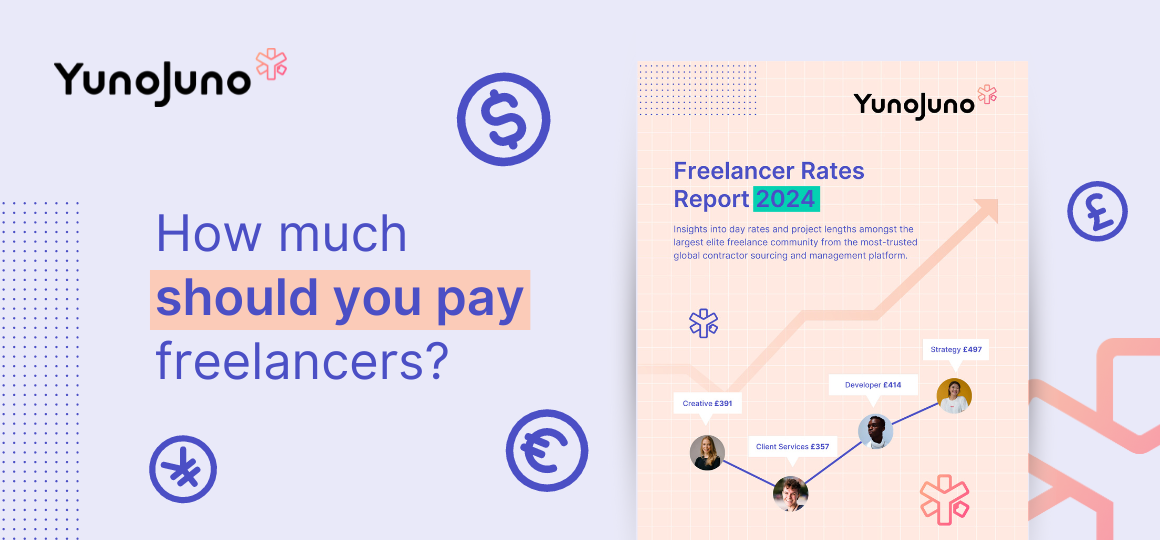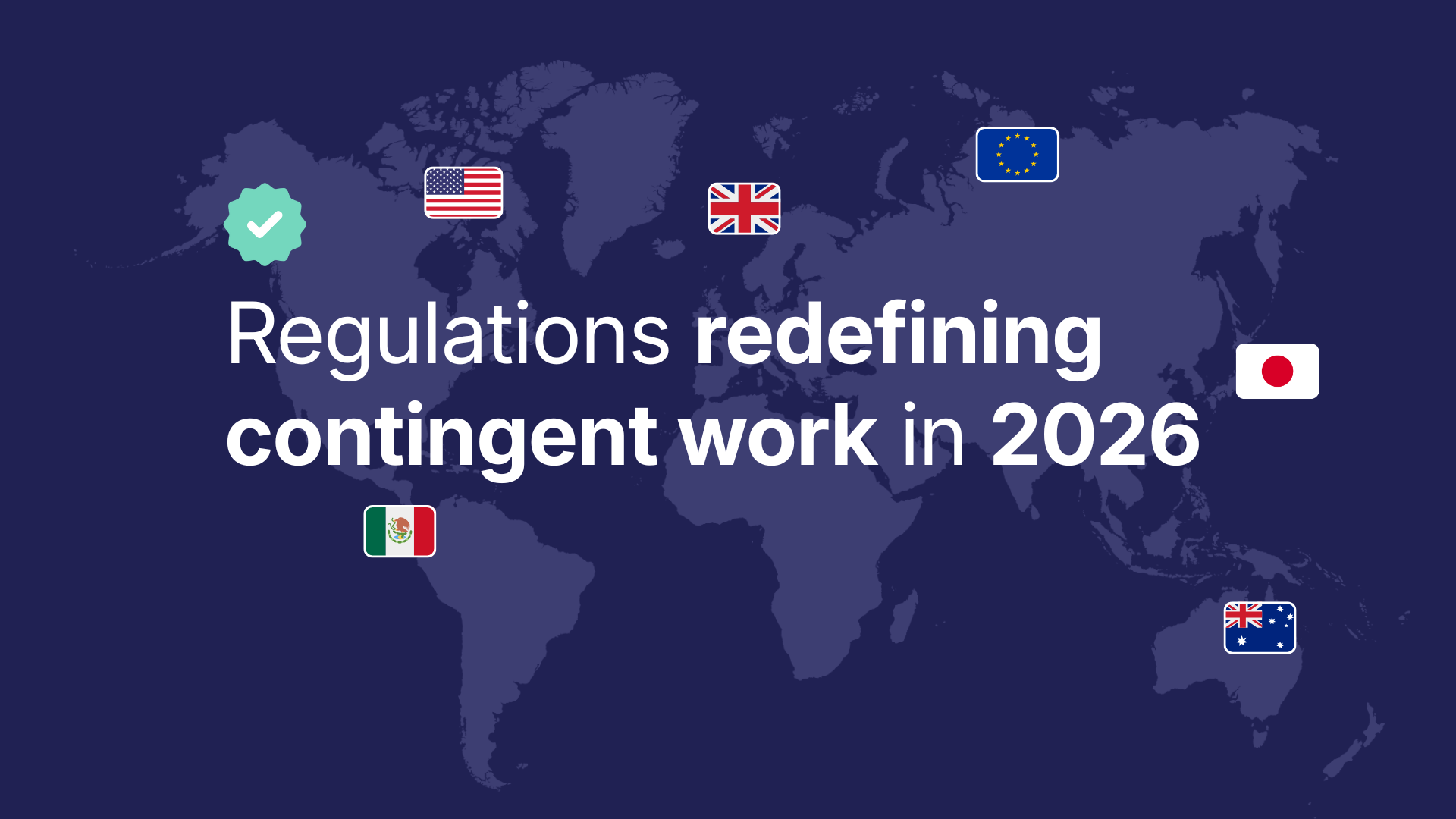With recent improvements in remote working, many companies are engaging with freelancers from a number of different countries and for a variety of reasons. The increase in global engagements raises a lot of questions, prominent among them being how much should you be prepared to pay for freelance services?
This is not an easy question to answer and it becomes more complex the more industries and countries you consider. Even companies with long-standing experience of hiring contractors struggle to get the balance right and have to regularly review their pricing against industry benchmarks in order to stay competitive.
This guide aims to unravel the intricacies of setting freelance rates, offering insights into how to overcome the challenges and providing a structured approach to help you to navigate freelancer pricing.
Why is pricing so difficult to get right?
Crafting a pricing strategy demands a nuanced approach and requires an understanding of both internal and external factors that are based around two main themes:
- How much are you willing or able to pay?
- How much is the market rate?
If rates are set too low, the risk of leaving potential earnings untapped arises, potentially undervaluing the services provided or onboarding a freelancer without the necessary skills and experience.
Conversely, setting rates too high may result in burning through the budget too quickly and not getting value for money.
How to think about freelancer rates
When you're looking to bring on freelancers, this list of considerations will help you to evaluate your decisions and ensure you're going about pricing in a way that’s right for both you and the freelancer.
Experience
Evaluating a freelancer's experience to gauge their proficiency and industry knowledge is key to ensuring that they are a good fit for the project. Seasoned professionals often command higher rates, reflecting their expertise and ability to deliver high-quality work or solve complex problems. However, if your project isn’t overly complex, you may be more comfortable hiring a less experienced contractor at a lower rate.
Be aware that many freelancers have varied and wide-ranging experience that is difficult to represent on a standard CV, so asking for one might not give you the best overview of their true experience.
Skills
You’ll need to assess the specific skills a freelancer brings to the table. Technical proficiency, creativity, and other specialised skills can significantly impact compensation.
Before commiting to interviewing, make sure you review the freelancers’ portfolio of previous work and online profiles to make sure they’re a good fit for the project and identify any potential skills gaps that you can ask them about in person. This information will help you to tailor rates to match the unique skill set required for the project.
Expertise
Consider the depth of expertise the freelancer possesses within your industry. Industry-specific knowledge can enhance the freelancer's contribution and may justify higher rates, particularly if you need an expert in a particular niche or someone whose skill set is hard to come by.
Project complexity
Determine the complexity and scope of the project. More intricate tasks or projects with extensive responsibilities may require higher compensation to attract skilled freelancers.
Return on investment (ROI)
It’s also important to think about the value freelancers bring to your project. A freelancer's contribution can go beyond the immediate task, impacting the overall success and return on investment (ROI) of the project.
While it’s difficult to forecast ROI for a variety of reasons, if you approach your pricing strategy with this in mind you may find that you're willing to up the rate if there’s potential for a high ROI, for example.
Location
It’s also important to acknowledge the impact of geographical location on freelancer rates. What’s considered a fair rate in some locations might not seem so fair in others. Understanding regional cost of living differences will enable you to ensure fair compensation that aligns with global market standards and help you to tap into professional networks in different regions.
Alongside this you need to consider time differences and requirements to travel. You don’t want to find yourself in a position where you require face-to-face communication for a freelancer but you are unable to do so because you hired at a cheaper rate in a country with an incompatible time zone.
Determine your budget
Establishing a realistic budget before you start hiring is crucial. Balancing the need for top-tier talent with financial constraints requires careful consideration. A well-defined budget sets the framework for successful freelancer engagements.
Determine the length of the contract
The duration of the contract also greatly influences freelancer rates. Longer-term commitments may warrant adjusted rates, reflecting the freelancer's commitment and the stability of the collaboration.
A long retainer might persuade a freelancer to accept a slightly lower rate than their average for the promise of security, whereas a shorter term project might warrant a higher rate to make it worth their while.
Hours on the project vs time needed to get the work done
Different freelancers work at different speeds. While hourly rates are common, consider the efficiency and productivity of the freelancer. Focusing on the value delivered from their output, rather than just hours worked can lead to more equitable compensation. From this you can consider if you pay the freelancer by the hour, day, project, or some other method.
Survey the data
Conducting thorough research on market rates for similar roles and understanding the prevailing compensation norms in your industry and region to remain competitive while ensuring a fair deal for both parties. But where do you look for this information?
Our 2024 freelancer day rates research benchmarks industry averages by role giving you fantastic insight into day rates and contract lengths to provide you with an invaluable tool to benchmark your freelance rates against.
Negotiate
It’s important to be open to negotiation. Remember that when you’re negotiating with a freelancer, you're negotiating with a business. The freelancer will need to make sure the rate is viable for them from a business point of view, so mutual respect of expectations is the bedrock of any conversations at this stage.
Establish clear communication channels, be open and honest, and discuss rates based on the freelancer's experience, skills, and project requirements. A flexible and collaborative approach can lead to mutually beneficial agreements.
Using the benchmarks set out in our 2024 day rates report linked to above will help give you a datapoint to begin constructive negotiations.
Legal and compliance risks
When hiring freelancers, particularly in a country or jurisdiction you’re unfamiliar with, you must understand and mitigate legal and compliance risks. Adhering to local labour laws and tax regulations is essential for avoiding legal complications and safeguarding your business reputation. YunoJuno can help you to mitigate these risks and ensure compliance with freelancer engagements in over 150 countries.
Take time to get your freelancer rates right
As you navigate the complexities of hiring freelancers, understanding the factors influencing rates is key to building successful collaborations. By considering all of the above you’ll be able to strike the right balance and foster productive relationships with freelancers across the globe.







